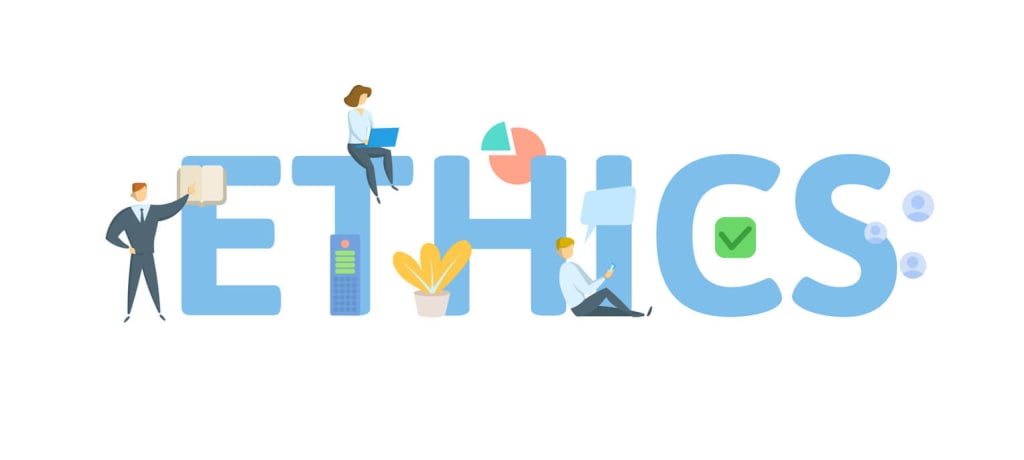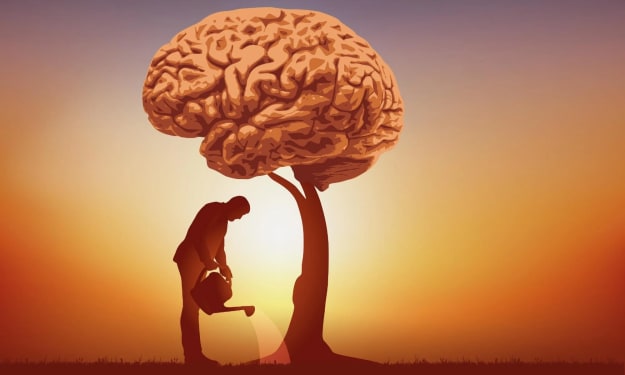"The Fine Line: Navigating Ethical Dilemmas in the Modern World"
Ethics and the Modern World

Ethics is the branch of philosophy that explores the nature of moral virtue and evaluates human actions with respect to their morality. It involves the study of concepts such as good and evil, right and wrong, and justice. Ethics also examines the moral rules and principles that govern the behavior of individuals and society.
Ethical Theories
There are many different ethical theories that have been developed throughout history, including consequentialism, deontology, virtue ethics, and care ethics.
- Consequentialism is the ethical theory that holds that the moral worth of an action is determined by its outcome or consequences. In other words, the morality of an action is based on whether it leads to good or bad results.
- Deontology, on the other hand, maintains that certain actions are always right or wrong, regardless of their consequences. It is based on the idea of moral duty, and holds that there are certain moral rules that should always be followed.
- Virtue ethics emphasizes the character and habits of the moral actor, rather than rules or consequences, as the key element of ethical thinking. It stresses the development of good character traits, such as honesty, courage, and compassion, as the means to achieving a virtuous and fulfilling life.
- Care ethics is a more recent development in ethical thinking and focuses on the responsibilities and relationships that people have to one another. It emphasizes the importance of empathy and care in guiding moral action, and stresses the interconnectedness of individuals within society.
Ethical Issues in Life
There are many different ethical issues that can arise in different areas of life, such as business, healthcare, and politics. These issues can be complex and may not have clear-cut answers. Ethical decision-making often requires careful consideration of the facts, an understanding of the relevant ethical theories and principles, and a recognition of the potential trade-offs involved.
Additionally there are many professional fields that have their own codes of ethics such as in medicine, law, engineering, accounting and many more that professionals in that field are expected to follow.
Ethics is an important field of study and a fundamental aspect of human life. It helps us to understand the nature of morality, and to make better choices in life. It's also a way to ensure that actions taken by individuals and society aligns with the moral principles and virtue.
Ethical Issues in Modern World
In the modern world, there are a variety of ethical issues that have arisen as a result of advances in technology, globalization, and other cultural and societal changes. Some examples of modern ethical issues include:
- Artificial intelligence (AI) and robotics: As AI and robotics continue to advance, there are increasing ethical concerns about their impact on society, such as job displacement, privacy, and the potential for AI to be used in ways that are harmful to humans.
- Biotechnology and genetic engineering: The rapid advancement of biotechnology and genetic engineering raises ethical concerns about issues such as eugenics, the manipulation of human biology, and the impact on the environment.
- Climate change: Climate change is one of the most pressing ethical issues of our time, with far-reaching implications for human society and the natural world. There are ethical concerns about the unequal distribution of the impacts of climate change, and about the responsibility of individuals and nations to address the problem.
- Privacy: With the rise of the internet and social media, privacy is a growing concern. Individuals and organizations collect vast amounts of personal data, which raises ethical questions about how this data is used and who has access to it.
- Globalization: Globalization is a complex and multifaceted phenomenon, and there are many ethical issues that have arisen as a result. These include issues related to economic inequality, cultural homogenization, and the impact of multinational corporations on the world's economies and cultures.
- Cybersecurity: As the reliance on technology increases, the issue of cybersecurity becomes more prevalent, creating concerns about data breaches, hacking, and the potential for cyber attacks to disrupt essential services.
These are just a few examples of the many ethical issues that have arisen in the modern world. As technology and society continue to evolve, new ethical challenges will undoubtedly arise, and it will be important for individuals, organizations, and governments to address these issues in a responsible and ethical manner.
Additionally, as the world becomes more interconnected and globalized, there are increasing calls for global and transnational ethics. This refers to the idea that the traditional ethical frameworks and principles need to be revised and expanded to better account for the challenges and issues that arise in a globalized world.
Social Ethics
Social ethics refers to the branch of ethics that deals with the moral principles and values that govern human behavior in society. It addresses questions about how individuals and groups should interact with one another, and what constitutes morally right or wrong behavior in the context of social relationships and institutions.
Some examples of social ethical issues include:
- Economic inequality: This is the unequal distribution of wealth and resources in society, and raises ethical questions about social justice and fairness.
- Discrimination: Discrimination refers to the unequal treatment of individuals or groups based on their race, gender, sexuality, age, or other factors. Discrimination raises ethical questions about equality, human rights, and the fair distribution of opportunities and resources.
- Environmental ethics: Environmental ethics deals with the moral implications of human interactions with the natural world, and raises questions about the rights of non-human entities and the responsibilities of individuals and societies to protect the environment.
- Political ethics: This deals with the moral principles and values that ought to guide the actions of governments, public officials and institutions, and raises questions about issues such as corruption, accountability, transparency and the common good.
- Rights and responsibilities: Social ethics also deals with the question of rights and responsibilities, both of individuals and groups, and raises questions about issues such as freedom, autonomy, and the balance between rights and obligations in society.
- Healthcare: Healthcare raises ethical questions about access, affordability, allocation of resources, and the moral principles that ought to govern medical research and practice.
Social ethics is a broad field that intersects with other areas of ethics, such as business ethics, environmental ethics, and bioethics. It's a complex and multifaceted field that requires the consideration of many different factors and the balancing of competing values and interests.
Social ethics is constantly evolving and changing based on the issues that are prevalent in a given society and culture. Therefore, social ethics is a continual process of reflection, discussion and critical examination of the moral principles that ought to govern social behavior.
About the Creator
Enjoyed the story? Support the Creator.
Subscribe for free to receive all their stories in your feed. You could also pledge your support or give them a one-off tip, letting them know you appreciate their work.






Comments (1)
very well explained